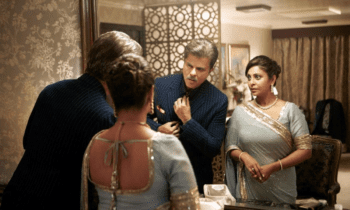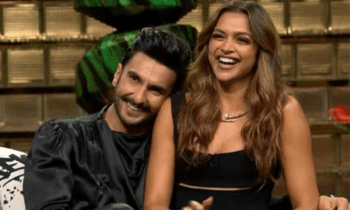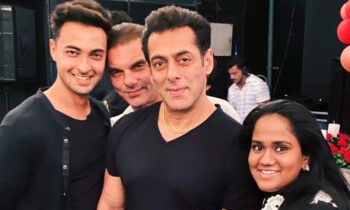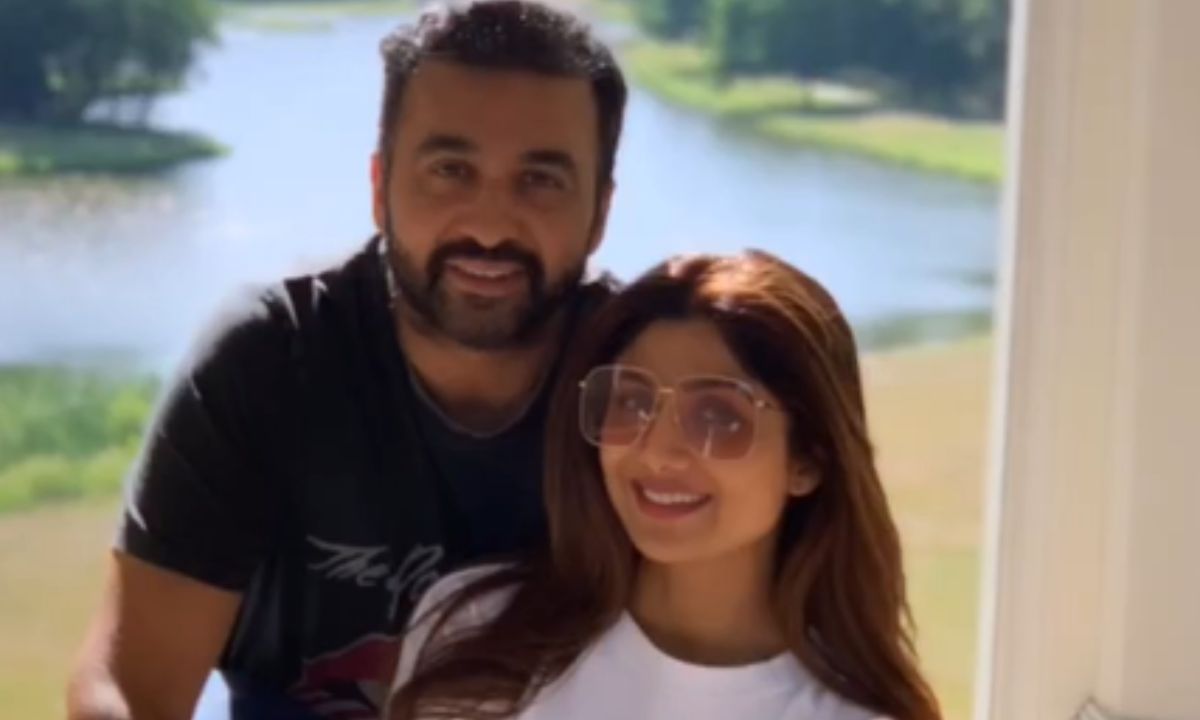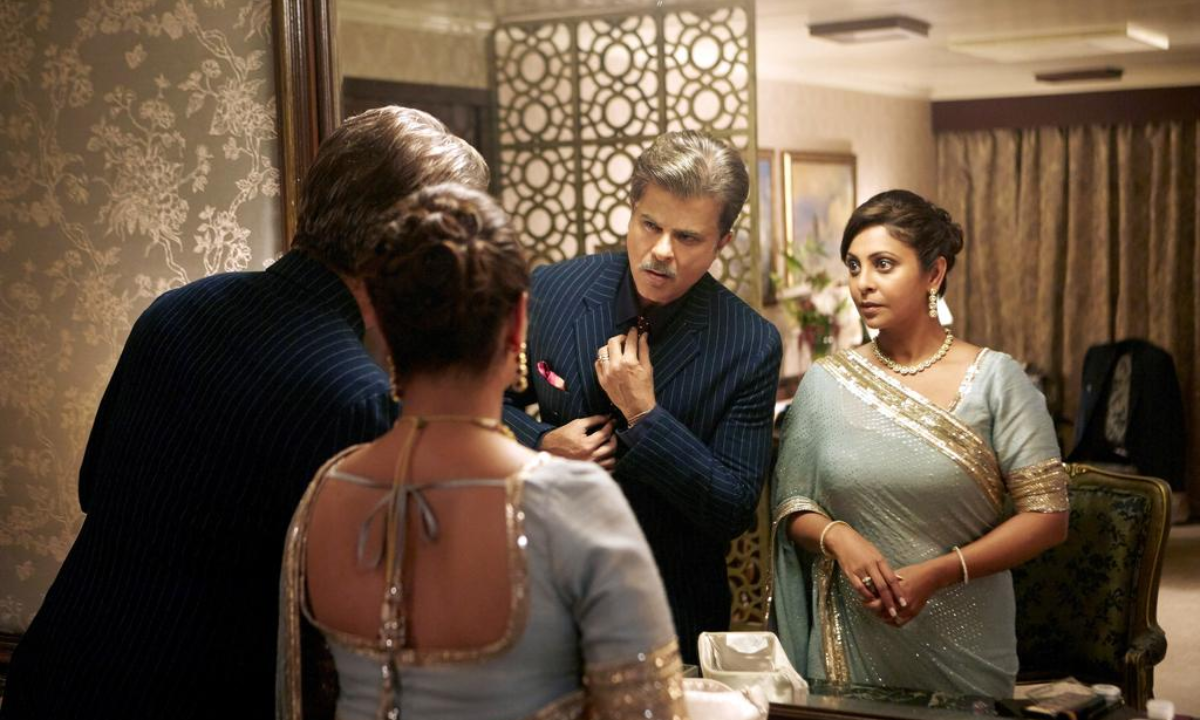Ramprasad Ki Tehrvi Review: Seema Pahwa’s Directorial Debut Is A Perfect Film About Our Imperfect Families
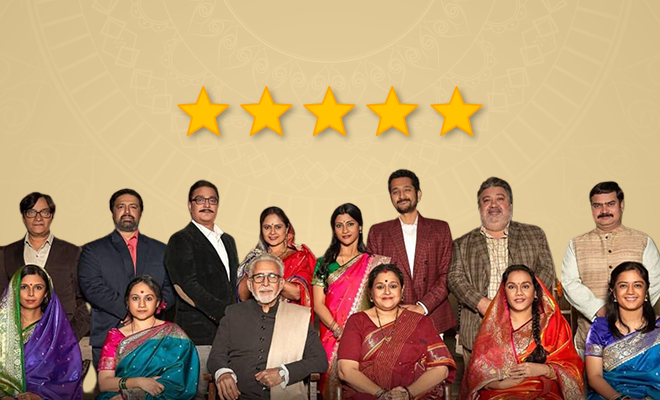
Ever since I lost my grandfather unexpectedly, three years ago, it’s been difficult for me to watch funeral scenes on screen. Worse, if I have to watch them with my family, because I cannot help but wonder how my parents are reacting to it. Are they as emotional as I am? And when the very next minute, I am smiling or laughing, there’s this teensy bit of residual guilt too. While funerals can actually get fake AF, they do have a knack of revealing the true nature of relationships and people. Ramprasad Ki Tehrvi, which marks the directorial debut of actor Seema Pahwa, captures this duality perfectly. The film features a cast of roughly 27 theatre, film and television actors, and is perhaps one of the most important films you’ll watch this year. Considering we’re fresh off spending months holed up with our own family members in the lockdown, this film hits different.
View this post on Instagram
Ramprasad Ki Tehrvi is the story of three generations of Ramprasad’s family. A musician who also repaired musical instruments for a living, Ramprasad remained devoted to his music until the very end, when he collapses suddenly while playing the piano. His death repopulates the otherwise empty family home as his four sons and two daughters, their spouses and children, and Ramprasad’s elder siblings, in-laws, and village acquaintances gather to pay their respects to the man, and offer condolences to his grieving wife.
Now Indian funerals have a typical format, okay. At one point in the film, Vikrant Massey, who plays Ram Prasad’s grandson, cannot control his sniggers when his grandmother is asked for the umpteenth time, “Ye sab kaise ho gaya?” Rushing indoors to let out his laughter, he remarks how he isn’t being inconsiderate but the mere redundancy of the situation is outrageously funny. It took me back to my own Daddu’s funeral, when I don’t even recall how many times my family and I encountered this situation and had to recount one of the most devastating moments of our lives to people who probably already knew “ye sab kaise ho gaya” from WhatsApp or phone calls. Then again, as Massey’s Rahul points out, you cannot blame the people. What even are you supposed to say at a funeral, right?
With moments rooted in real life situations like these, despite appearances, Ramprasad Ki Tehrvi isn’t a sad, serious film about grief and mourning. As the humongous joint family comes together under one roof, there’s a lot to go over together, apart from grief. Humans have devised funeral customs and rituals with the intention of keeping loved ones so busy and surrounded by people for some days, that it serves as a distraction from the pain of losing a loved one. It is what Amma, Ramprasad’s widow, hopes will happen now that her children are brought together by the tragedy. Alas, what happens is quite the opposite.
Everyone’s squabbling over whether they should have the customary 13-day mourning period or not, the menu for the food that will be served after the puja, which child and his family visited their old parents more often, and what should happen to the mother now that she would be alone in the house. If not fighting, they’re jesting and stealing moments of fun, inconsiderate of the matriarch’s grief and concerns.
When the arrival of the otherwise aloof youngest daughter-in-law and the revelation that the family has inherited Ramprasad’s loan liability throws the family in chaos, Ramprasad Ki Tehrvi delivers relatable emotions, heartfelt performances, and a nuanced understanding about Indian families. Oh and an ending that is unexpected and yet the most natural!
Also Read: Study Finds Women Directors Helmed Record Number Of Hollywood Films In 2020. Back Home Also, Women Ruled The Roost
The story, dialogues and characters are so relatable, helped in heaps by the writing and a talented cast!
Take a deep breath as I introduce you to the incredible cast, all of whom deserve an individual round of applause for their performances: Naseeruddin Shah, Supriya Pathak Kapur, Konkona Sen Sharma, Manoj Pahwa, Vinay Pathak, Ninad Kamath, Parambrata Chattopadhyay, Vikrant Massey, Anubha Fatehpuria, Sarika Singh, Brijendra Kala, Deepika Amin, Divya Jagdale, Sadiya Siddiqui, Shrikant Verma, Vineet Kumar, Rajendra Gupta, Yamini Dass, Pushpa Joshi, Alka Kaushal, Siddharth Gautam, Manukriti Pahwa, Sawan Tank, Mahesh Sharma, Jaya Virlley, Sanah Kapur, Neivan Ahuja, amongst others.
You’d think it would be too much of a hodge-podge to remember all the relations. But minutes into the film, these actors infuse their character with such familiar identities that the moment you see them enter the scene, you go, “Arre yaar Mamaji phirse tokne aa gaye!” Or “Bua ji is savage AF at this age!” The characters reminded me of my own family (my grandpa too had a lot of siblings!) because they feel so lived in, and are played by actors I’ve been watching on TV, some since I was in single digits! My eyes would light up every time I recognised a familiar face in the throng, and I LOVED how they used Parambrata Chattopadhyay and Sanah Kapur (daughter of Supriya Pathak Kapur) to play young Ramprasad and Amma, respectively!
What also allows these characters to further endear themselves to us is the way they’re written, their unique situations, and their dialogues. No two characters feel the same or replaceable. I watched this film with my parents, because isn’t that the apt litmus test for a movie like this one? And I don’t remember the last time we exchanged so many knowing glances amongst ourselves while watching a film! Every relative and their antics were relatable AF!
View this post on Instagram
From that Mamaji who occupied the bathroom and would stink it up, to the Chacha who couldn’t use one until he had had his morning smoke. The overly helpful neighbourhood aunty, the elder Buaji who has outlived everyone, the one modern Tauji who talks sense but was always ignored, the son-in-law who takes offence over every little thing, the daughter who always felt disrespected in her maika, and the daughters-in-law who were frenemies of the first order but united before the men. Oh, and of course, the younger lot, who didn’t care if it was a funeral or a wedding; they just wanted to do matargashti, watch cartoons and celebrate New Years Eve!
We all have these characters in our families and these moments when we’re all gathered for some social occasion. So every scene felt like I was watching my own family’s interactions play out. And it wasn’t just the funny moments that felt relatable. In the deepest bitter truths spoken, when the pretence of the ‘ideal Indian joint family’ is dropped and all hate is laid bare, in those moments too, I experienced a déjà vu of sorts.
Embedded amidst the slice-of-life setting are introspective commentaries on the patriarchal Indian family system.
How do you make a film about family without making it vanilla and monochrome like a Rajshri film, preachy and rigid like Baghban or goofy and slapstick like, say a Khichdi? They all offer social commentary, but which is the one that really makes you introspect? Ramprasad Ki Tehrvi walks that tightrope so well, I couldn’t believe this was Seema Pahwa’s debut as a director. Brava, ma’am!
Indian families are flawed to the point where we desperately need to change things up now. The notion that the patriarch or elders can do no wrong, which shatters spectacularly in the confines of private conversations amongst the younger generations, is a sham we’ve been playing along with for so long now that it is tiresome. The repercussions of this flawed system play out quite well in the film.
Through Ramprasad’s family, we discover that sometimes, parents might think they’re doing their best for their kids. But it is only because they’ve shut down any voices of dissent from the very lives they’re trying to control. As a result, we’re raising a generation of repressed men and women, who have so much vitriol in their hearts, that they can’t control their bitching rants during their father/father-in-law’s funeral, even for the sake of appearances. The film also comments on gender politics, portraying not just men as enforcers of patriarchy but also women as silent enablers of misogyny, bringing their own kind down as they compete for validation from the men. The arcs of characters belonging to different generations are juxtaposed to give you an idea of how the younger generation is doomed to repeat the mistakes of their parents, but it’s not too late to remedy that.
And finally, there’s this beautiful learning about grief, weaved into the story with gossamer thin strands, about how even our own loved ones can be unintentionally insensitive, and how life moves on.
Tedha hai par mera hai was never more suited for anything but Indian families. Love ’em or hate ’em, you cannot ignore them because sometimes they’re all you have. And sometimes, they do come through. But that doesn’t mean you take them for granted, and let the cycle of repression and problematic codependency continue in every generation. And that’s what Ramprasad Ki Tehrvi puts forth. Of course, the change cannot be absolute or overnight, and it is precisely why the ending of the film feels organic and ideal at the same time.
The film reminded me of old plays I’d watched in the theatre and late 80s shows like Nukkad, Hum Log and Dekh Bhai Dekh!
I read a year-old interview of Seema Pahwa, where she spoke about how she wrote the story, a play titled ‘Pind Daan’, and how Naseeruddin Shah (who ushered her into the Mumbai theatre scene years ago) told her that she should go ahead and direct the play/movie herself. Maybe it is because of the cast, or it’s Pahwa’s Hum Log and theatre roots showing, but Ramprasad Ki Tehrvi has this distinct feel of 80s nostalgia. The simplicity with which the film delivers complex themes is reminiscent of the Doordarshan era of family entertainment, when you didn’t need to think much about technicalities and stuff. The message just got delivered straight to the heart, and that’s where you processed it!
Though since I brought it up, the film is near perfect in my humble opinion. Nothing and nobody overstay their welcome; and the camera strolls around the Ramprasad home as if it knows every nook and cranny and feels intimate enough. The music by Sagar Desai and lyrics by Neeraj Pandey also hit home, evoking all the right emotions. I love the songs, especially ‘Ek Adhoora Kaam’!
View this post on Instagram
Verdict: A perfect film about our imperfect Indian families.
With this film, Seema Pahwa joins the list of female filmmakers who’ve had a stellar 2020 and shown us that they’re capable of such good storytelling. I hope we see more of her work, with such ensemble of theatre actors!
View this post on Instagram
Seema Pahwa’s directorial debut is pure perfection in the way it portrays the complexities of our Indian families—patriarchal, repressed, bound by blind devotion, but also loving, understanding, and bittersweet. I swear, at some points, I wondered if she had eavesdropped on my family gatherings to source dialogues because they’re so relatable! Performed masterfully by a cast that is covetous, and released at the end of a very family-oriented year and the exact start of the new year (Was that a meta joke, guys?), Ram Prasad Ki Tehrvi is, to borrow a phrase from a dear friend, “one of the best films you’ll watch this year”.
Ramprasad Ki Tehrvi is currently playing in theatres.
https://thehauterfly.com/culture-2/soul-review-disney-pixar-jamie-foxx-tina-fey-jazz/







